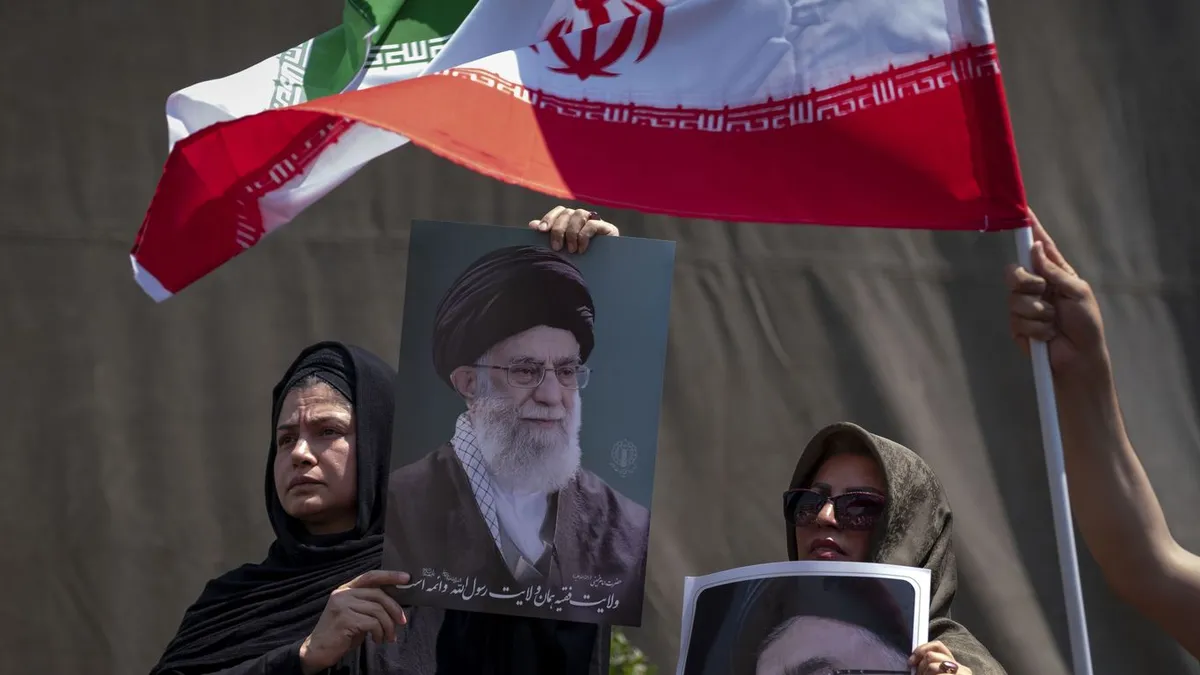
Over the weekend, significant developments unfolded regarding the ongoing conflict between Israel and Iran. According to U.S. officials speaking to Axios, there existed an operational window for Israel to potentially assassinate Iran's Supreme Leader, Ali Khamenei. However, President Trump made it unequivocally clear that he opposed such drastic measures. This decision highlights the complexities and sensitivities surrounding U.S. foreign policy in the region.
White House officials emphasize that President Trump is focused on preventing further escalation of the war and is keen on resuming negotiations with Iran regarding a nuclear deal. The Trump administration has distanced itself from Israel's military operations, arguing that any Iranian retaliation against U.S. targets would be unjustifiable. This stance reflects a broader strategy aimed at maintaining regional stability while navigating the intricate dynamics of U.S.-Iran relations.
As the conflict entered its third day on Sunday, both Israel and Iran engaged in intense missile exchanges. Reports indicate that Israel's Air Force launched attacks on an Iraqi airbase located in the eastern Iranian city of Mashhad, which is notably over 1,400 miles from Israeli territory. This escalation underscores the urgent need for diplomatic intervention to prevent further violence and loss of life.
A U.S. official revealed to Axios that since the onset of the Israeli operations, there was an opportunity to target Khamenei. However, the official reiterated that President Trump expressed his strong opposition to such actions. The official stated, “The Iranians haven't killed an American, and discussion of killing political leaders should not be on the table.” This comment reflects a cautious approach to military engagement and a desire to avoid unnecessary escalation.
In the wake of these developments, Israeli national security adviser Tzachi Hanegbi publicly denied claims that President Trump vetoed an assassination plan for Khamenei, labeling it as fake news during an interview on Israel's Channel 12. Similarly, Israeli Prime Minister Benjamin Netanyahu dismissed the Reuters report in an interview with Fox News' Bret Baier, suggesting that many reports about conversations that supposedly took place are untrue. This creates a narrative of uncertainty and contrasting perspectives between U.S. and Israeli officials.
Adding to the discourse, Yechiel Leiter, Israel's ambassador to the U.S., did not exclude the possibility of Khamenei being considered a target for the Israeli Defense Forces. In an interview on ABC News’ This Week, Leiter stated, “I think it's fair to say that nobody who's threatening the destruction of Israel should be off the target list.” This assertion further complicates the situation, as it raises questions about the ethical implications of targeting political leaders in conflict situations.
The ongoing conflict between Israel and Iran continues to be a focal point of international concern. As U.S. officials navigate the delicate balance of military action and diplomatic efforts, the situation remains fluid. The implications of these developments could have far-reaching effects on regional stability and U.S.-Iran relations in the coming months.